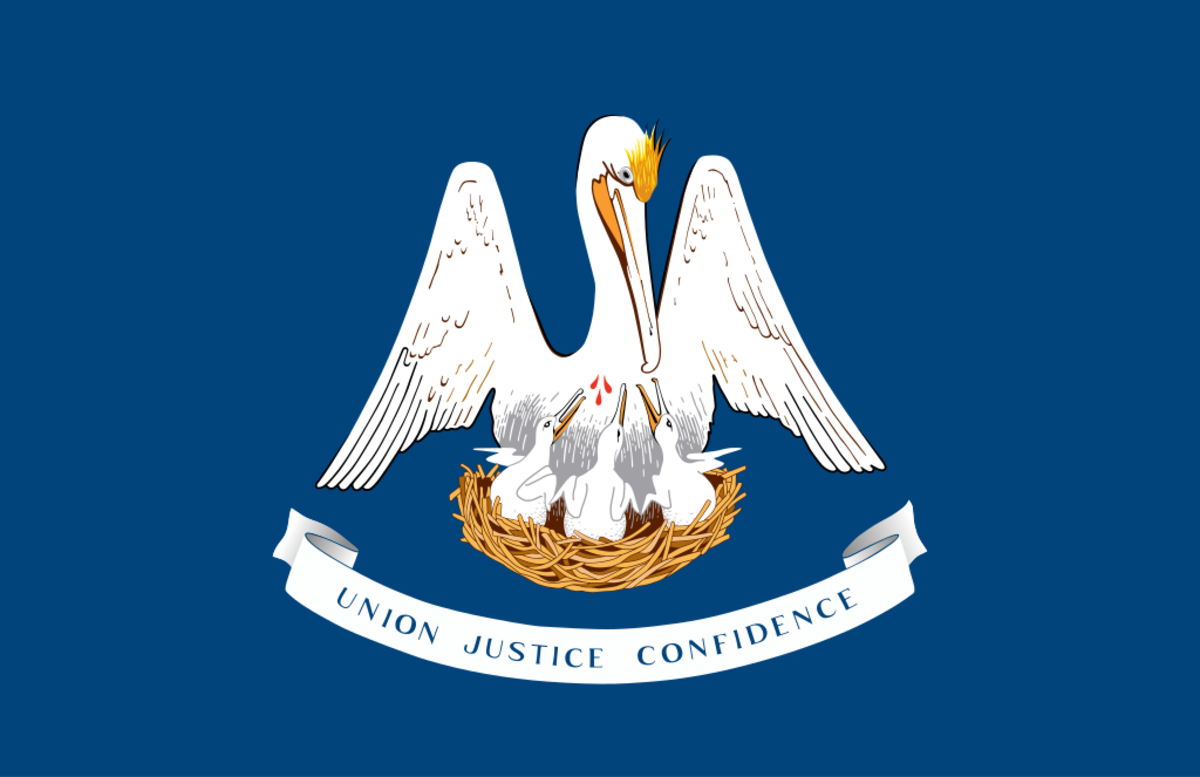Louisiana Medical Malpractice Laws

According to data from the National Practitioner Data Bank, Louisiana recorded 136 medical malpractice payment reports and 1,030 adverse action reports in the first nine months of 2023. In the previous year, Louisiana had the 13th most medical malpractice payment reports and the eighth most adverse action reports in the U.S. These figures show that reported instances of issues with medical providers in the state are relatively high and that residents should be prepared to deal with the situation.
Louisiana established its Medical Malpractice Act, designed to protect qualified healthcare workers against claims by requiring each claim to be reviewed by a medical panel. This Act also limits the amount of monetary damages that can be recovered from these workers. The law protects medical professionals in cases of lawsuits while also enabling those who experience medical malpractice in Louisiana to raise their concerns properly and fairly.
This article aims to help victims of medical malpractice understand the process of making a claim and its requirements to be able to seek proper compensation. It also discusses the steps involved in the medical review process, helping Louisianians ascertain if they have enough grounds for a lawsuit.
What Qualifies as Medical Malpractice in Louisiana?
Medical malpractice in Louisiana involves cases where a medical provider did not fulfill their duty of care and caused an injury to their patient. A healthcare provider must give their patient the level of care expected for their profession; failure to do so is considered negligence. When it results in health complications or death to the patient, it becomes malpractice.
Examples of medical malpractice cases in Louisiana include:
Anesthesia errors. Mistakes involving anesthesia administration include improper intubation, incorrect dosage, and failure to monitor vital signs. Anesthesiologists are responsible for identifying potential complications, using proper equipment, and ensuring that the patient understands the risks.
Surgical errors. Malpractice claims involving surgical errors may include removing the wrong organ, leaving surgical tools inside the patient, amputating the wrong limb, damaging the surrounding tissues and organs, and operating on the wrong side of the patient.
Misdiagnosis or delayed diagnosis. Early diagnosis and treatment can prevent patients from suffering life-altering health conditions. A wrong or late diagnosis can result in a decreased chance of survival and the need for more aggressive treatment.
Birth injuries. Medical malpractice in childbirth involves the improper use of forceps or vacuum extractors, failure to detect fetal distress or a delay in performing the required cesarean section. Mistakes by healthcare providers during childbirth can lead to conditions such as Erb’s palsy, cerebral palsy, or maternal hemorrhage.
Medication mistakes. Common examples of medication errors include dispensing expired drugs, giving a patient the incorrect medication, and failing to consider a patient’s allergies.
Informed consent violations. Healthcare providers are required to obtain informed consent from the patient before they administer treatment or perform a medical procedure. To obtain informed consent, the provider must explain to the patient the benefits, risks, and alternatives to the proposed treatment.
Who Can You Sue for Medical Malpractice in Louisiana?
The definition of a healthcare provider could include a person, corporation, partnership, facility, institution, or limited liability company licensed or certified by the state to provide healthcare services.
Examples of medical professionals that could be held liable for medical malpractice include:
Hospitals.
Physicians.
Dentists.
Acupuncturists.
Physical therapists.
Lab personnel.
Athletic trainers.
Tissue banks.
Nursing homes.
Community blood centers.
Licensed nutritionists.
Licensed dietitians.
Mental health counselors.
Exemptions as per the Good Samaritan Law
Louisiana has a Good Samaritan Law that protects doctors and other medical personnel from malpractice cases in times of emergency. This law applies in situations where a person’s health and well-being are in danger, immediate action or first aid is necessary, and the paramedics or ambulance are absent or on the way.
If the person in need of emergency care suffers further injuries because of the healthcare provider’s assistance, it will be unlikely that the injured person can win a lawsuit against the responder. This is the case so long as the latter acted in good faith.
However, there is an exception to the protection that the Good Samaritan Law provides. If the healthcare professional exhibited gross negligence or willful misconduct while providing emergency care, which led to further injuries, the injured person can file a medical malpractice lawsuit.
The Good Samaritan Law not only applies to medical personnel licensed in the state of Louisiana, but also to healthcare providers who possess a valid license in another state.
Medical Malpractice Liability Insurance Requirements
Louisiana law does not require healthcare providers to carry medical malpractice insurance. However, malpractice insurance is required in most hospitals in the state before a physician is granted admitting privileges.
In Louisiana, the common limit of liability is $100,000 per claim, with an annual aggregate cap of $300,000.
The state has a Patient’s Compensation Fund that was created in 1975. It provides insurance coverage to private medical practitioners in Louisiana to ensure a stable market for malpractice insurance and keep practitioners in the state. The fund provides payment for malpractice claims worth over $100,000 up to the $500,000 damage cap.
What Is the Statute of Limitations in Louisiana for Medical Malpractice Cases?
Victims of medical malpractice in Louisiana have until one year after the healthcare provider’s negligent action to file a claim. If the patient did not immediately know about the malpractice, they are given one year to file a claim after they discovered or reasonably could have discovered the negligent action.
Individuals filing for medical malpractice within one year of the injury’s discovery will have the responsibility of proving that they did not know about the negligent action for over a year before they filed their lawsuit. Louisiana caps the discovery rule at up to three years. This means that regardless of the victim’s injury and the medical mistake committed by the healthcare provider, the injured patient cannot file a medical malpractice claim if the negligent action took place more than three years ago.
The statute of limitations for medical malpractice in the state is paused when the claimant submits a request for review from a medical review panel. It may also be paused if the healthcare provider engages in fraudulent conduct that affects the plaintiff’s ability to file a claim.
Louisiana, unlike some other states, does not pause the statute of limitations if the victim of medical malpractice is mentally disabled or a minor.
What Do You Need to Prove in a Louisiana Medical Malpractice Case?
The basic elements of a medical malpractice claim in Louisiana are similar to those in other states. Here, the plaintiff is required to show that their healthcare provider breached the standard duty of care while treating them and that it was the cause of their injury.
In order to prove medical malpractice, the plaintiff must first demonstrate that they had a doctor-patient relationship with the healthcare provider. This means the medical professional and the patient had both agreed to the treatment and diagnosis.
The injured patient should then prove that the medical professional was negligent by identifying the mistake they made. This could include specific incidents like misdiagnosis, surgical errors, or mistakes in administering medication or anesthesia.
Once the negligence has been identified, the plaintiff must then prove that there was a breach of the standard of care. This entails showing that the healthcare provider’s actions did not meet the standard of what a provider from the same industry would have done under the same circumstances.
The next step is to demonstrate that the plaintiff's injuries are a direct result of the medical professional's negligence and subpar care. Simply proving that the healthcare provider was negligent is not enough for a medical malpractice claim; there must be evidence of a direct link between their actions and the patient’s injuries.
The injured patient should also quantify the losses they suffered. This can be done by compiling receipts for medical treatment and lost wages that were caused by their injury.
An expert witness’s testimony could prove vital in medical malpractice cases. Expert witnesses in Louisiana are usually experienced healthcare professionals who explain complex medical matters and help in determining whether the standard of care was met by the defendant. They must meet the required qualifications, such as proper training, experience, and licenses.
Medical Review Process
Medical malpractice claims in Louisiana must first be submitted to a medical review panel before filing a lawsuit. The review panel determines whether the injured patient has the necessary evidence to support their claim.
If the victim files a medical malpractice complaint without first having their claim examined by a medical review panel, the defendant may ask the judge to dismiss the lawsuit.
Some scenarios, however, allow the case to proceed in court without going through the medical review process. One of these is when the defendant and the complainant both agree to bypass the review process.
The medical review process in Louisiana involves several steps and requirements:
Submitting a request for review. The injured patient must submit their complaint to Louisiana’s Division of Administration before the deadline for filing a lawsuit. The request should include the names of the individuals involved, the alleged injuries, the date the malpractice happened, and a brief description of the alleged malpractice.
Payment of filing fees. The claimant will receive confirmation from the board within 45 days. The plaintiff must pay a $100 filing fee for each defendant involved. The fee could be waived if the court determines that the injured patient does not have the means to pay or if the plaintiff submits an affidavit stating that a physician has concluded that the defendant failed to meet the standard of care.
The formation of the medical review panel. The medical review panel will comprise three licensed healthcare providers and an attorney. The plaintiff and the defendant will contribute to the selection of the panel.
Panel’s opinion and review. The review panel will examine the evidence submitted by the plaintiff and the defendants. The evidence could include reports from medical experts, medical records, and transcripts of witness depositions. A report will be issued within 30 days after the review is complete. It must state whether the evidence supports a conclusion that the defendant did not provide the appropriate standard of care. It will also state whether the case needs to be settled by a judge.
Payment for the review panel. The plaintiff must pay for the costs of the medical review panel if the opinion is in their favor, except if they have already obtained a court ruling stating that they do not have the means to pay. If the defendant was favored, the plaintiff has to post a bond in the amount of the panel costs before they can file a lawsuit.
Effects of the review. If the plaintiff files a lawsuit, the medical review panel’s report could be used as evidence in court. The panelists could also be called to testify as witnesses.
If the panel is not able to issue an opinion after one year since they were formed, the plaintiff may proceed with filing a lawsuit.
How Much Can You Sue for Medical Malpractice in Louisiana?
Injured patients who are successful with their medical malpractice claims will be granted a monetary award based on the losses they have suffered due to the healthcare provider’s negligence. An experienced attorney in Louisiana can help plaintiffs calculate the amount they are entitled to.
Types of Damages
Victims of medical malpractice in Louisiana are entitled to compensation for economic and non-economic damages.
Economic damages compensate the injured patient for financial losses due to their injury. These include prescription fees, medical bills, physical therapy costs, loss of future wages, and wages lost because of the inability to work.
Non-economic damages are awarded to make up for losses that are hard to evaluate properly. Loss of consortium, loss of enjoyment, and pain and suffering are common examples of non-economic damages.
Louisiana does not typically award punitive damages for medical malpractice cases.
There is a $500,000 damage cap on non-economic damages for medical malpractice cases that involve a defendant insured by the state.
Any damage award that is more than $100,000 will be paid through the Patient’s Compensation Fund.
Negligence System
Louisiana follows a pure comparative fault system for medical malpractice cases. This means that even if the patient is partially to blame for their injuries, they can still receive damages if they win the lawsuit. The awarded compensation, however, will be reduced in proportion to their level of fault.
If the court finds the plaintiff 99% responsible for their own injuries, they will still be granted 1% compensation for damages.
Methods of Obtaining Compensation
Victims of medical malpractice in Louisiana can receive compensation without the need to go to trial if they choose to resolve their dispute through arbitration.
If both parties agree to arbitrate a claim, it also does not need to go through the medical review panel process.
How Much Does It Cost to Pursue a Medical Malpractice Case in Louisiana?
There are a lot of costs involved in pursuing a medical malpractice lawsuit, and some of these are lawyer’s and medical expert’s fees, filing expenses, and the cost of a medical review panel.
There are no limitations for attorney fees in Louisiana. This means the court will not place a limit on the amount an attorney will be able to take in a medical malpractice case.
Most medical malpractice attorneys charge a contingency fee of 33% of the plaintiff’s award. Some lawyers charge more if the case goes to trial.
Legal Resources for Medical Malpractice Victims in Louisiana
Louisiana Division of Administration—Medical Review Panel
The Louisiana Division of Administration website has an online resource that focuses on educating individuals about the medical review panel. It helps victims of medical malpractice navigate through the required review process and explains what information must be included when filing a request for review.
Louisiana State Bar Association
The Louisiana State Bar Association offers legal services to residents of the state. It provides customized legal information and local court forms. It can also refer eligible Louisianians to legal aid organizations to help them resolve their legal problems.
Louisiana Medicaid Program
The Louisiana Department of Health facilitates the Louisiana Medicaid Program, a government-sponsored benefit that aims to help needy members of the community receive adequate health care. Low-income individuals and families in Louisiana may receive medical benefits from the Medicaid program. Victims of medical malpractice can check the website to see if they qualify for the program. They can also call 1-888-342-6207 for assistance in applying for Medicaid.
Expertise.com StaffAuthor
Step into the world of Expertise.com, your go-to hub for credible insights. We don't take accuracy lightly around here. Our squad of expert reviewers, each a maestro in their field, has given the green light to every single article you'll find. From rigorous fact-checking to meticulous evaluations of service providers, we've got it all covered. So feel free to dive in and explore. The information you'll uncover has been stamped with the seal of approval by our top-notch experts.




